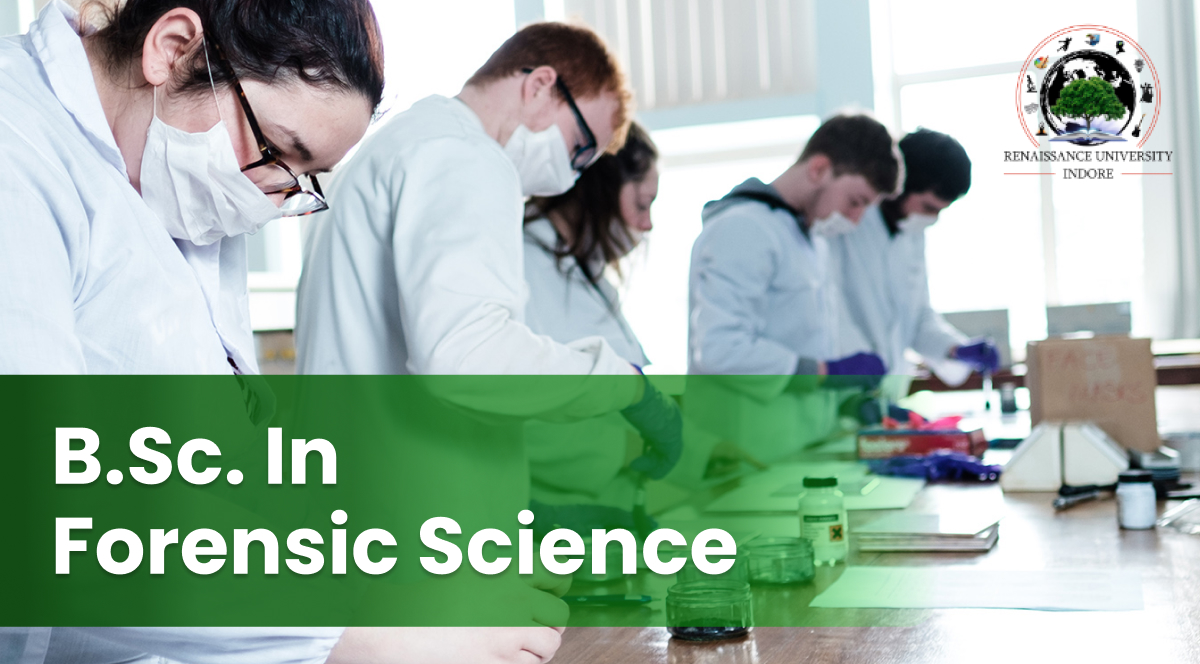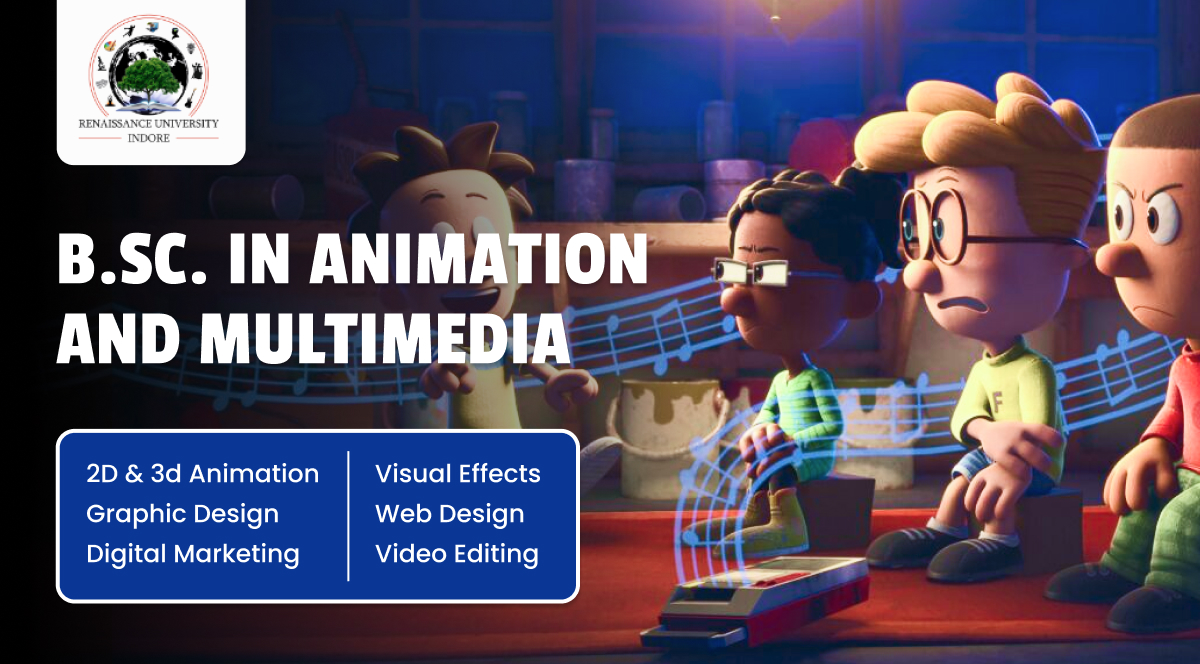Forensic Science is a fascinating and highly specialized field that plays a crucial role in the criminal justice system. This scientific discipline involves the application of scientific techniques to investigate crimes, analyze evidence, and aid in the resolution of legal cases. Pursuing a Bachelor of Science (B.Sc.) in Forensic Science is a popular choice for students interested in pursuing a career in this field. With its comprehensive curriculum, extensive practical training, and promising career prospects, a B.Sc. in Forensic Science India is an excellent way for students to enter the world of forensic investigation. In this blog post, we’ll explore the importance of forensic science, the curriculum of B.Sc. Forensic Science, the career opportunities available, the necessary skills required for a career in this field, job prospects and salaries, and more.
Importance of Forensic Science
Forensic science plays a critical role in the investigation and resolution of criminal cases. It involves the application of scientific methods and techniques to collect and analyze physical evidence, such as DNA, fingerprints, and ballistics, and provide objective and impartial findings that can be used in court. Without forensic science, many crimes would go unsolved, and innocent individuals may be wrongly convicted.
In addition to its role in criminal investigations, forensic science also contributes to the justice system by helping to ensure that legal proceedings are fair and based on reliable evidence. Forensic scientists often serve as expert witnesses in court, providing testimony about their findings and analysis. Their work helps to ensure that justice is served and that the guilty are held accountable for their actions.
Forensic science has played a crucial role in many high-profile criminal cases, including the O.J. Simpson murder trial, the Boston Marathon bombing, and the Ted Bundy serial killer case. In these and many other cases, forensic evidence provided by forensic scientists was instrumental in securing a conviction.
In summary, forensic science is an essential component of the criminal justice system, and its role in solving crimes and ensuring justice cannot be overstated.
The curriculum of B.Sc. Forensic Science
The curriculum of a B.Sc. in Forensic Science is designed to provide students with a comprehensive understanding of the field and the scientific techniques and methods used in forensic investigations. The core subjects typically cover a broad range of topics, including criminal law, forensic biology, forensic chemistry, and forensic psychology.
Criminal law classes cover the basics of the legal system, including the principles of criminal law, criminal procedure, and evidence. Forensic biology courses focus on the use of biological evidence, such as DNA, hair, and bodily fluids, in criminal investigations. Students learn about the collection, analysis, and interpretation of biological evidence and the techniques used to identify suspects and victims.
Forensic chemistry classes cover the use of chemical analysis in forensic investigations, including the analysis of drugs, poisons, and trace evidence. Students learn about the various analytical techniques, including chromatography and spectroscopy, and their application in forensic science. Forensic psychology courses focus on the application of psychological principles to criminal investigations, such as the use of profiling and the evaluation of eyewitness testimony.
In addition to the core subjects, B.Sc. Forensic Science programs may also offer elective courses that allow students to specialize in a particular area of forensic science. Examples of elective courses include digital forensics, forensic anthropology, and forensic entomology.
The curriculum of a B.Sc. in Forensic Science typically includes extensive practical training, including laboratory work, crime scene analysis, and mock trials. This practical experience allows students to apply the theoretical knowledge gained in the classroom to real-world situations and prepares them for a career in forensic science.
Career Opportunities
A B.Sc. in Forensic Science opens up a range of career opportunities in the field of forensic investigation. Some of the most common career paths for graduates include:
- Forensic Scientist – Forensic scientists work in crime laboratories and are responsible for analyzing and interpreting physical evidence to help solve crimes. They may specialize in areas such as DNA analysis, firearms examination, or toxicology.
- Crime Scene Investigator – Crime scene investigators collect and analyze physical evidence from crime scenes, including fingerprints, DNA samples, and ballistics evidence. They may work for law enforcement agencies or private firms.
- Forensic Psychologist – Forensic psychologists apply psychological principles to criminal investigations and legal proceedings. They may assist with criminal profiling, conduct evaluations of defendants, or provide expert testimony in court.
- Forensic Accountant – Forensic accountants investigate financial crimes, such as embezzlement and money laundering, and analyze financial records to uncover evidence of fraud or other illegal activity.
- Forensic Computer Analyst – Forensic computer analysts use digital forensics techniques to investigate cybercrime, including hacking, identity theft, and online fraud.
Other career paths for B.Sc. in Forensic Science graduates may include forensic anthropology, forensic entomology, or crime laboratory management. With the growing demand for forensic science expertise, graduates of this program can expect to find many career opportunities in both the public and private sectors.
Duration of a typical B.Sc. in Forensic Science program
Typically, the duration of a B.Sc. in Forensic Science program in India spans three years. This triennial journey is divided into six semesters, with each semester lasting around six months. The structure is in line with the broader framework of undergraduate programs in India.
Year-wise Breakdown:
- First Year: Foundation and Fundamentals
- The inaugural year is focused on establishing a strong foundation in the basic sciences, including chemistry, biology, and physics.
- Students get introduced to the fundamental principles of forensic science, forensic biology, and forensic chemistry.
- Practical sessions and laboratory work are an integral part of the curriculum, providing hands-on experience with various forensic techniques.
- Second Year: Specialization and In-Depth Study
- Building upon the basics, the second year delves into specialized areas such as forensic toxicology, forensic serology, and forensic ballistics.
- Students explore crime scene investigation techniques and gain insights into forensic anthropology and entomology.
- The curriculum emphasizes practical application through internships and real-case studies.
- Third Year: Advanced Topics and Practical Application
- The final year is marked by an in-depth exploration of advanced forensic topics, including digital forensics and forensic psychology.
- Students engage in practical training to hone their skills in crime scene management, evidence collection, and analysis.
- The program concludes with a research project or internship, allowing students to apply their knowledge in real-world scenarios.
Skills Required for a Career in Forensic Science
A career in forensic science requires a combination of technical and analytical skills, as well as excellent attention to detail and strong communication skills. Some of the key skills required for a career in forensic science include:
- Scientific knowledge – Forensic scientists must have a solid understanding of scientific principles and techniques, including biology, chemistry, and physics.
- Attention to detail – Forensic investigations involve analyzing and interpreting physical evidence, often in minute detail. As such, forensic scientists must have excellent attention to detail and be able to identify even the smallest details that may be relevant to a case.
- Critical thinking – Forensic science is a highly analytical field, and forensic scientists must be able to analyze evidence, draw conclusions, and make sound judgments based on scientific principles and data.
- Communication skills – Forensic scientists must be able to communicate complex scientific concepts to non-scientific audiences, including judges, juries, and lawyers.
- Teamwork – Forensic investigations often involve a team of specialists, including forensic scientists, crime scene investigators, and law enforcement officials. As such, forensic scientists must be able to work effectively as part of a team.
- Ethical awareness – Forensic scientists must adhere to strict ethical guidelines and must be able to maintain the impartiality and objectivity required to provide reliable scientific evidence.
- Problem-solving skills – Forensic science investigations often involve complex and challenging problems, and forensic scientists must be able to approach these challenges with a problem-solving mindset.
- Adaptability – Forensic investigations can be unpredictable, and forensic scientists must be able to adapt to changing circumstances and be flexible in their approach to investigations.
A career in forensic science requires a combination of technical expertise, analytical skills, and strong communication and interpersonal skills. Graduates of a B.Sc. in Forensic Science program can expect to develop these skills through a combination of coursework and practical training.
Forensic Science Job Prospects and Salaries
Job prospects for graduates of a B.Sc. in Forensic Science are generally positive, with the demand for forensic science experts growing steadily in recent years. Forensic science professionals are employed in a variety of settings, including law enforcement agencies, crime laboratories, and private firms specializing in forensic investigations.
According to the U.S. Bureau of Labor Statistics (BLS), employment of forensic science technicians is projected to grow 14 percent from 2019 to 2029, much faster than the average for all occupations. This growth is driven by advancements in forensic technology and an increased reliance on forensic evidence in criminal investigations.
Salaries for forensic science professionals can vary widely depending on the specific job and level of experience. According to the BLS, the median annual wage for forensic science technicians was $60,590 as of May 2020, with the highest 10 percent earning more than $97,200. Forensic psychologists, forensic accountants, and other specialized forensic science professionals may earn higher salaries based on their level of expertise and experience.
In addition to salaries, many forensic science professionals enjoy other benefits, such as job security, opportunities for advancement, and the satisfaction of working in a field that contributes to public safety and justice. Graduates with a B.Sc. in Forensic Science can expect to find many rewarding career opportunities in the growing field of forensic science.
Top colleges in India for B.Sc. in Forensic Science
- Renaissance University Indore
- University of Delhi, New Delhi
- Osmania University, Hyderabad
- Jain University, Bangalore
- Institute of Forensic Science, Mumbai
When choosing a college for a B.Sc. in Forensic Science, it is important to consider factors such as accreditation, reputation, faculty qualifications and experience, and available resources such as laboratories and equipment. It is also a good idea to research the college’s placement record to ensure that graduates are able to secure good job opportunities after completing their degree.
Conclusion
In conclusion, a B.Sc. in Forensic Science is a highly specialized degree that provides students with a solid foundation in the principles and practices of forensic investigation. Graduates of this program are equipped with the technical and analytical skills necessary to analyze physical evidence and contribute to criminal investigations.
The curriculum of a B.Sc. in Forensic Science covers a range of subjects, including forensic chemistry, forensic biology, and crime scene investigation. In addition to coursework, students in this program may also gain practical experience through internships and laboratory work.
Career opportunities for graduates of a B.Sc. in Forensic Science are varied and include positions in crime laboratories, law enforcement agencies, and private firms specializing in forensic investigations. Job prospects for forensic science professionals are generally positive, with employment projected to grow in the coming years.
A B.Sc. in Forensic Science offers a unique and exciting career path for students interested in the application of science to criminal investigations. With the skills and knowledge gained through this program, graduates can make valuable contributions to the field of forensic science and help to ensure justice for victims of crime.
FAQ
Q: What is B.Sc. in Forensic Science?
A: B.Sc. in Forensic Science is an undergraduate degree program that provides students with a comprehensive understanding of the principles and practices of forensic science. The program covers a range of subjects, including forensic chemistry, forensic biology, and crime scene investigation.
Q: What are the career opportunities after completing a B.Sc. in Forensic Science?
A: Graduates with a B.Sc. in Forensic Science can find employment in a variety of settings, including crime laboratories, law enforcement agencies, and private firms specializing in forensic investigations. Job titles may include forensic science technician, forensic accountant, forensic psychologist, and more.








